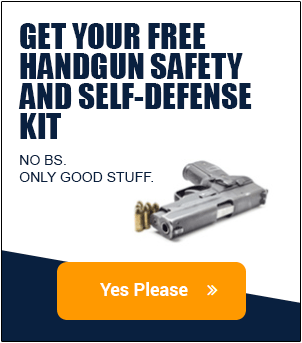Obtaining a CCW permit is a step responsible gun owners take with pride and commitment. But that commitment doesn’t end with the issuance of the permit, and the responsibility to carry smartly and safely continues long after. Many first-time mistakes of new concealed carriers can easily be avoided.
Lack of Training: In some states, a bare minimum of training is required for a permit. Choose an in-depth course that includes intensive, hands-on training and don’t stop there. You’ve spent money on a firearm, ammunition and holster, now it’s time to invest in training. Consider what’s at stake here. It’s perhaps the most important part of the equation.
Improper Wardrobe: You don’t want to reveal your gun, so choose clothes that are comfortable and concealing. With some trial and error, you can do this without compromising your style. Choice of clothing will also help you avert printing. Avoid obvious tactical outerwear, as it may call unwanted attention when discretion is the safer option.
Fingering the Firearm: If you are constantly checking your gun to make certain it is still there, you are sure to call attention to yourself and the place on your body where you holster your firearm. Fight this urge; it will lessen the longer you carry. But as long as you have purchased a high-quality holster and your gun is properly secured, you should have no need to be constantly checking.
Knowing the Law: Knowledge and responsibility go hand in hand. It’s your duty to know the local, state and federal gun laws. You may have learned some of these in training. If you need to freshen up, you’re just a mouse-click away. If you are traveling, it’s incumbent upon you to do the research and know the legality of carrying in each jurisdiction you pass through.
Imprudent Behavior: While this does not apply to the majority of CCW permit holders, it is still a good reminder: Be cautious. Of course you will protect your life and family, but do your best to avoid dangerous situations in the first place. Don’t play a role in intensifying conflicts, exit threatening situations when possible and let the police handle their business. Situational awareness and conflict avoidance are key.
Foregoing Regular Practice: Use or lose it. Dry-fire drills are not for nothing, but live fire is essential to keeping and improving your skills. Accuracy does not increase in an adrenaline-infused situation, so practicing at the range will give you an edge. Target a practice session every four to six weeks to hone your skills.


